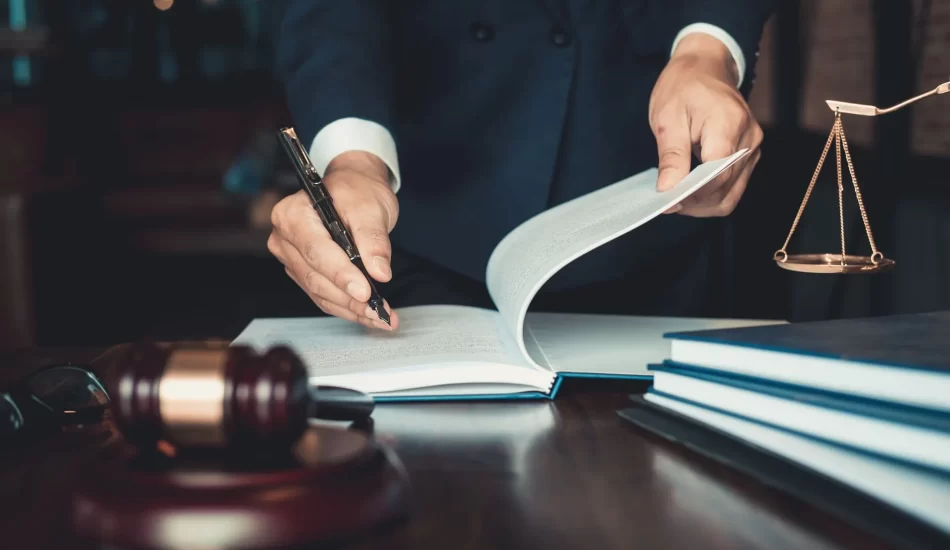Recent Changes to Georgia’s Criminal Defense Laws: What You Need to Know

The Peach State has been making steady strides in criminal defense law over the last several years. This is thanks in large part to court rulings and changes to Georgia’s drug laws. In addition to these changes, a new version of the Georgia Code was released on November 1, 2018. These revisions will impact how criminal defense lawyers practice law in Georgia.
Georgia’s revised Code of Judicial Administration (CCJA) came into effect on January 1, 2019. Among other things, this new code codified best practices for maintaining case files and streamlining discovery procedures. Let’s look at some of the most recent changes that impact criminal defense lawyers in Georgia.
Changes to the Georgia Rules of Criminal Procedure
While the Georgia Rules of Criminal Procedure (GCPC) have not changed, some new policies affect how criminal defense lawyers practice law in Georgia. One such policy is the requirement that all attorneys must electronically file their motions, pleadings, and briefs. This policy went into effect on October 1, 2018.
Another policy impacting criminal defense lawyers is the requirement to use a secure case management system. This new rule became effective on January 1, 2019. To comply with this mandate, you’ll need an electronic case management system or a secure case management system like CLMS.
CCJA and the New Capital Advancement Fund
One of the most important changes is the addition of a Capital Advancement Fund that will allow law firms to be reimbursed for court-related expenses. This fund has been created due to the significant cost of litigation in Georgia. Another important change is the CCJA’s implementation of a “pre-trial best practices rule” which aims to streamline discovery procedures, improve efficiency, and reduce costs.
This new rule states that discovery should occur no more than four months before trial and that depositions should not be used more than twice during trial proceedings. There are also changes related to pre-trial discovery in terms of document request timelines and limitations on the information that can be requested.
Criminal Defense Lawyers in Georgia Can Now Practice Law Without a License
If you’re a criminal defense lawyer, the new CCJA will have a significant impact on your practice. The CCJA states that criminal defense lawyers can practice law without a license as long as they have completed a formal legal education program and have at least five years of experience practicing law. This means that people who are self-represented (attorneys without an office,) local community attorneys, and private attorneys with fewer than five years of experience can now represent defendants in Georgia courts without having to be licensed.
Changes to Cannabis-Related Crimes
In 2018, the Georgia General Assembly passed HB 86, which removed marijuana-related crimes from the state’s criminal code. Some of the consequences of the new law include: If a person is charged with possession of cannabis after January 1, 2019, they will not be charged with a crime that would subject them to imprisonment or jail time; they will instead be arrested and issued a citation.
If a person is charged with the sale or trafficking of cannabis after January 1, 2019, they will not be sentenced to life without parole but rather receive two consecutive sentences of 10 years each. The new Georgia Code also mandates that police officers have to take fingerprints at the time of an arrest for any marijuana-related offense.
These changes are significant for those who have been charged with possession or trafficking in cannabis because their charges could change from felonies to misdemeanors. The best course of action is to consult with a criminal defense lawyer familiar with these changes to see what may be available for you.
Georgia’s New Habitual Offender Law Takes Effect on July 1, 2020
As of July 1, 2020, Georgia will have a new habitual offender law. The new law will impact any individual convicted of two felony offenses that carry a prison sentence of (1) Life imprisonment; (2) 20 years or more; (3) 10 years or more but less than 20 years; or (4) five to 10 years. An individual becomes a habitual offender on the third conviction if the person has been convicted twice before. The habitual offender law in Georgia is not retroactive.
This means that if someone is currently serving a prison sentence, they are not eligible for the benefits of this new law until their release date. But if someone has already served their sentence and has been released from prison, they are eligible for these benefits right away! Habitual offenders remain ineligible for certain types of relief even after completing their sentences including expungement and having their records sealed.
Wrap-Up: What You Should Know About Recent Criminal Defense Law in Georgia
The updated Code of Judicial Administration (CCJA) came into effect on January 1, 2019, and will have an impact on how criminal defense lawyers practice law in Georgia. The revised CCJA streamlines case files and outlines best practices for maintaining case files and codifying discovery procedures. Contact Jarrett Maillet to help with your criminal case today!


